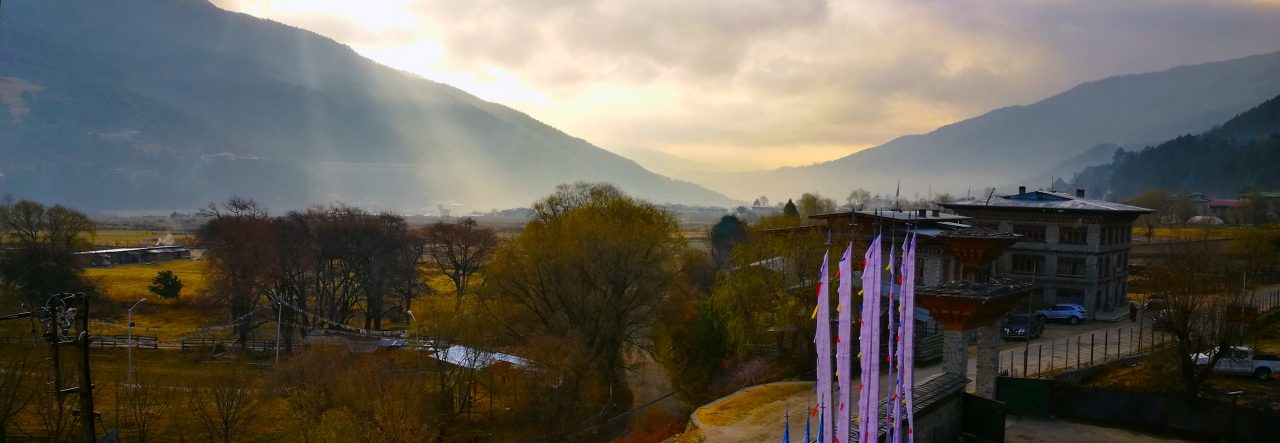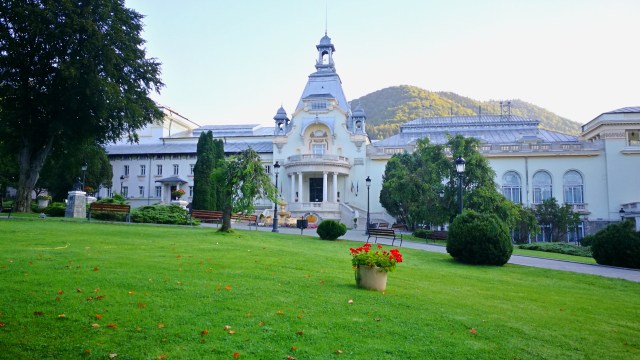 Radio – Back to the Future III
Radio – Back to the Future III
(In this third and last part, I highlight the need for the society to slow down and reflect – and for the traditional media such as radio, TV, and newspapers to be proactive and not reactive. This article is an elaboration of the talk in Romania)
A story goes that a Rabbit was sleeping under a tree and dreaming of the world ending in front of him. He suddenly woke up, and thought: “What if the world really should collapse? What would become of me?” At that instant, a coconut fell on the ground. On hearing the noise, the Rabbit was like: “The world is really blowing up!” And he jumped up and ran just as fast as he could, without even looking back to see what had made the noise. Two deer saw him running, and called after him, “What are you running so fast for?” “Don’t you know? The earth is all breaking up!” he replied. And on he ran, and the deer followed him when they heard that the earth was all falling apart. They passed a fox, calling out to him that the earth was all breaking up. The fox then ran with them. The fox called to an elephant to come along because the earth was all breaking up. On and on they ran, and all the animals in the forests joined in the running.
The age of Internet has got the world running. We heard a noise and we all started running – and we are still. Nobody is asking what was that noise. Instead, it is speed, speed and speed. Everything at giga bits per second. Faster computers, faster Internet, faster emails and faster cellphones over above the fast cars, fast planes and fast trains that we already have. Even my country Bhutan, in less than a decade, has gone from 2G to 3G to 4G to soon, 5G. But faster to where or faster for what? Nobody knows.
The irony is that the traditional media, such as the radio and the television – the original gatekeepers and messiahs, have joined the bandwagon. So, news need to be put on air as fast as possible – and, at times, with accuracy and objectivity severely compromised. At best, the news item is shallow devoid of any context or background. Newsreaders have to read the news as fast as they can. That’s the trend. There is also no time to sit and watch a full bulletin. Hence, many news channels just flash the headlines without the main story. In-depth research is a passé because what is news in the morning is history by evening.
There is a fundamental question that we need to ask. Why are we running?
What do people do with the ‘extra’ time that they have ‘saved’ from whatever they were doing? Do they pursue something that they love, something that they are passionate about, their hobby such as painting, cooking, music or gardening? Do they spend quality time with friends and family? Do they pursue spiritual practices? We often notice that as we drive home, people don’t let others overtake because they want to get to their destination fast. There is growing impatience and anger. In Bhutan, we are seeing a new phenomenon that was unheard before: road rage. Anyway, what do people do after they get to their destination? Back to the fast life, I guess – or just gossiping – in our case.
 Second, the prophets of technocracy have promised that the world would be more connected. Physically I cannot refute the claim. Yes, we are connected to everyone in multiple modes – phones, Facebook, WhatsApp, WeChat, etc. We are even connected from 39,000 feet when I am cruising in a jetliner. However, just as there is a big difference between having information and being informed, there is also a difference between ‘being connected’ and reals connections. It is not very unusual to see these days groups of friends gather for dinner or coffee and, instead of talking to each other, would be on their respective phones or gadgets. Where is the connection?
Second, the prophets of technocracy have promised that the world would be more connected. Physically I cannot refute the claim. Yes, we are connected to everyone in multiple modes – phones, Facebook, WhatsApp, WeChat, etc. We are even connected from 39,000 feet when I am cruising in a jetliner. However, just as there is a big difference between having information and being informed, there is also a difference between ‘being connected’ and reals connections. It is not very unusual to see these days groups of friends gather for dinner or coffee and, instead of talking to each other, would be on their respective phones or gadgets. Where is the connection?
People are unconsciously driven to be restless, impatient and anxious all the time. What will be the long term impact of such behaviours on the human species?
Last, and the most important. As a teacher one of the most difficult tasks in teaching is to grab the attention and retain them while you are teaching. Scientifically, the average attention span was thought to be fifteen minutes. With the world being pushed to be faster and speed being the new normal, our role has become even harder. The attention span of even adults, I assume, has reduced. In academic conferences we are given just ten minutes to present our paper. Some newspapers have asked me to write opinion pieces under 500 words. It is crazy. The impact is not only in classrooms but also in life where people are unconsciously driven to be restless, impatient and anxious all the time. What will be the long-term impact of such behaviours on the human species? Is anyone even asking that question?
Almost every place on Earth and beyond is connected and yet misunderstandings, war and conflicts continue to terrorize not only those involved directly but also those who have nothing to do with the issue. Similarly, there is so much information out there on everything – public health, for example, and yet the world is sicker than ever. Facts and figures are lying around like leaf litters in the forests while campaigns of disinformation and mal-information are very successful – even in the so-called developed world. According to a survey done by a German scholar, 40% of respondents in Europe said that they fell flat for the fake news while the same study revealed that 60% could not separate myths from simple facts.
More connectivity does not necessarily mean more connections. More information does not mean that we are better informed.
What does all this mean? It means that we need to slow down, reflect before moving forward. More connectivity does not necessarily mean more connections. More information does not mean we are better informed. Speed does not mean that we are getting things done well. We need to ponder on what is happening around us. We need to understand what the noise is all about – and stop running unnecessarily.
As is an individual, so is an organisation. The traditional media such as radio, TV and newspaper need to do some deep introspection and retrospection. They need to ask who they are and what is their fundamental role. Can they allow knee-jerk reactions? Is it to get the news faster or is it to give accurate and objective information? Is it whitewash the society with shallow and superficial shows or is it to enlighten the people with deeper meanings so that they make informed choices and make positive changes? I don’t mean that they should be indifferent. What I am saying is that they take time to respond – be proactive – but not reactive. The traditional media should lead – and not be lead. There is no need for them to play the catch up game.
The traditional media should lead – and not be led. They should be proactive – not reactive.
Niel Postman, writing in Technopoly, suggests that the impact of a technology is known only decades after it is introduced. Hence, it is too early to say that social media is bad. The initial studies are not positive. Narcissism, anxiety and loss of human connection, family and community are some of the initial findings. Hence, it would be wise for the social science to catch up and then the traditional media can decide whether and how to join the race.
The opening story ends with the King of Jungle, the mighty Lion, appearing and ordering for the running to stop. Inquiries and investigation ensue that finally lead to the Rabbit who had assumed that the world was falling apart after hearing a coconut fall behind him. The world was not cracking up. It was just an imagination. It was a simple error of not fact-checking.
Hopefully, one day, we would realise that a faster world is not necessarily better, and that, actually, we haven’t even set a destination as yet. Then what are we running for? To get to where?
What is this noise?
~~~~~~~~~~~~~~~~~~~~~~~~~~~~~~~~~~~~~
NB:
(At Centennial Radio 101FM in Bhutan one of the most popular programs in Slow and Easy that plays soft music with some pieces of life quotes. We are starting a Centennial Book Cafe where we will invite listeners to come and relax and have a coffee; to put down their phone and talk to each other; to call their illiterate parents or grandparents back in the village – instead of doing only status updates on social media.)



